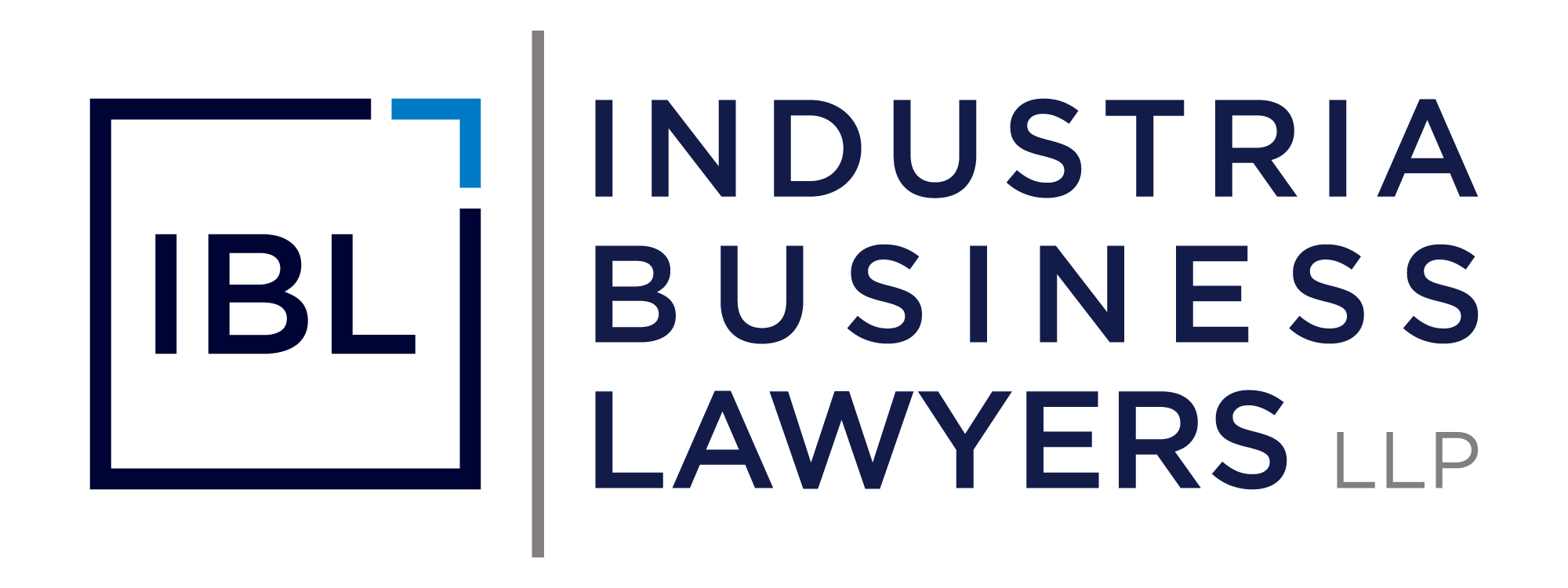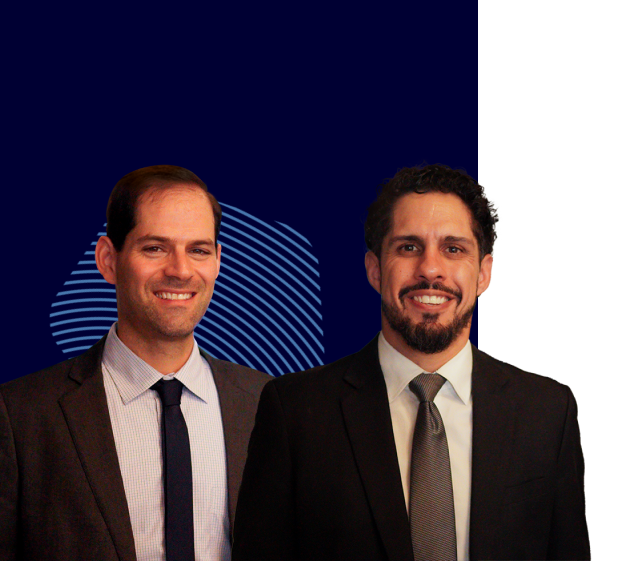The following is an interview between our law clerk Elisa Bernardini (EB) and of counsel attorney Ali Derie (AD). Ali attended the University of Buffalo for his undegraded and attended Vanderbilt University for Law School. He’s a well-versed attorney and Anti-Money Laundering (AML) advisor with experience in the financial legal and regulatory fields. In the interview, Elisa and Ali discuss an array of topics involving the future of crypto to advice for entrepreneurs interested in the blockchain space.
EB: What is your role in IBL?
AD: Doing mostly team leads at this point. Started a year ago, and moved up from research to drafting. I’ve been on a few client calls. The initial client calls, but I mostly shepherd various projects to completion, you know, try to wrangle teams of attorneys to sort things through. And then I draft just to make sure it’s the last stop before it’s reviewed by the senior attorneys.
EB: Could you please give us a brief summary of your career path and what sparked your interest in the blockchain space?
AD: Sure. I’ve had a sort of a wild one. Originally, I was going to become a teacher out of law school. I was an adjunct professor at the University of Alabama School of Law. Did that for two years. Then I worked at a bank. I worked at MIT Bank, not utilizing my legal degree. And then I decided to take the bar. And after which, shortly after, I started working for the Department of Justice EDNY Civil Division, where I was part of a team that investigated a bank for the RMBS crash of ‘08. I did that from 2014 to 2018.
AD: And let’s see, in 2017, a friend of mine who went to the same law school put me in contact with Aaron Krowne, I sent an email, started talking to him, and found out that Aaron Krowne was looking for additional help with advising blockchain projects and companies. Then there was the big boom in ICOs with crypto projects, and initial coin offerings. And so, I was looking for something interesting, something new, something that invigorated my intellectual abilities. So, I jumped right in. I got myself familiar with the blockchain space, participated in a few different ICOs and various projects, and got what’s called CAMs certification, a compliance certification, for anti-money laundering. So, I did some compliance-related stuff, which led me to move over to Citibank as a compliance officer there. Around then, in 2018, is when the ICO crypto crash happened. And so the work seemed to have dried up a bit.
AD: And so I just moved into more of a regular compliance banking regulation. Did that for a year. Then I found myself a little bit intellectually stagnant and hit up Aaron again. And that’s how I got back into blockchain and started working for IBL.
EB: So has IBL helped propel you into the blockchain industry? If so, please give us an example.
AD: Yeah, it definitely propelled it. I’ve worked with dozens of different blockchain companies, mostly as an attorney, sometimes as a compliance officer, and I’ve worked with almost every type of blockchain project you could imagine, and not only just Ethereum, Solana, and Cardano. Seems like I’ve done it. It was just by fulfilling each client’s individual needs, which, while similar in a lot of respects, differ a lot depending on the circumstances. A lot of regulatory counsel, a lot of transactional. Blockchain has allowed me to work in a much wider swath of legal matters than I would in a traditional legal law firm. And we’re on this sort of unpaved or untrod snow where we’re sort of figuring out how this incredible technology interacts with state and traditional legal and regulatory frameworks.
EB: Could you please elaborate on any blockchain projects you have worked on, and can you share what you’ve learned from them?
AD: Yeah, if you go to the IBL website, for example, I was just checking out, you’ll see Hashflow on there. And that’s typical of the kind of work that I’ve done with IBL and IBL does, where we sort of analyze a particular digital asset and try to figure out whether it’s a security or not, where are the safeguards or potential dangerous thresholds for the individual products and how it interacts with the user base and what the regulatory ramifications might be. We go into the nuts and bolts. I mean, one thing that IBL has always prided itself on is that we go above and beyond in regards to how deep and intellectually rigorous the analysis we do on these products.
AD: We know these products. Every one of the attorneys in the law firm, has a MetaMask wallet, has a digital wallet, has done a little bit of swap trading, you know, has that same basic level of knowledge of the blockchain space. We’re relatively young, and so we sort of grew up with the stuff. For example, for Hashflow, we read the white papers like any attorney would, but we also join the platform, join the discord, just being part of the ecosystem, utilizing the digital assets, and getting a first-hand experience with actual digital data. As attorneys, it gives us that extra edge that helps propel a client’s interactions with regulatory authorities.
EB: Do you anticipate any regulatory changes occurring in the blockchain space?
AD: Oh, yeah. I mean, in the next year or two, there’s definitely going to be some sort of realignment. I mean, if you just look at the various proposed legal bills, CFTC, the SEC, there’s definitely something rumbling as far as creating these parameters for this type of technology. And so, you see even though we’re still a little bit in the dark when it comes to getting the right type of guidance from our regulatory legal authorities, you could definitely tell that there will be more of it and that we will have to pay way more attention to adhere to those regulations and laws. And so, yeah, definitely something’s got to be coming down the pipeline, and so we need to be ready for it.
EB: Do you have a specific method and how do you stay up to date with recent developments in the blockchain industry?
AD: Yeah, I mean, there’s an entire Twitter verse of crypto attorneys. There are websites like the block. What I like to do is not only stay in the attorney space but stay in the crypto enthusiasts or just crypto social media space. I follow particular people that I respect that actually have a head or deep knowledge of crypto and might even have a somewhat skeptical eye on particular projects or personalities. So yeah, just be on social media, and keep on reading white papers. And you tend to see that a lot of the stuff comes in waves. You know, as I mentioned, ICOs were very 2017, then DAOs were very last year. And so, these things come in waves. You need to be on top of it as an attorney or just as a person who wants to participate in the space.
AD: You just have to keep yourself up to date and with as many projects as you can.
EB: Based on your experience and knowledge, what is a problem you often see when a business tries to launch a blockchain project?
AD: I would say not taking into consideration that regulatory and legal authorities will be looking at your product. If you put a product out there that can be traded, that has some sort of economic characteristics that seem similar to more traditional types of products already present in the economic system, then you need to get your ducks lined in a row. You can’t just throw your product out into the wind. You have to prepare, seriously prepare your product with a legal analysis framework. And sometimes you just don’t see that. You don’t see that work happen ahead of time. The justification for doing so is not just pragmatic, it’s for moral reasons as well. These regulatory frameworks and protections and demands and requirements are there to make sure that people in the end aren’t being taken advantage of.
AD: An individual wanting to trade something, isn’t buying something that they aren’t aware of. And so like, these regulations are then supposed to be protecting people. And so as a corporation trying to put a product out there, then it behooves you to try to follow those strictures and get proper representation and advice.
EB: What advice would you give an attorney trying to learn more about this blockchain space?
Ali Derie: Let’s see, like I said, keep apprised of regulatory and legal frameworks coming down the pipeline and the ones that exist. Try to pick up as much of a wide swath of legal knowledge and cases as you can. Because blockchain tends to touch on everything, almost everything. So you can’t kind of just specialize on, oh, I’m going to just work on this particular type of contract or even just transactional work. You’re going to have to work on regulatory analysis, you’re going to have to work on compliance, you’re going to have to work on having a little bit of knowledge on litigation, intellectual property. So you just have to keep your mind moving and you can’t stay still.
EB: That is excellent advice. Now, on the opposing spectrum, What advice would you give an entrepreneur thinking about launching a project in the blockchain industry?
AD: I would say, first of all, just pay attention to some of the biggest SEC-related regulatory rulings or communications, for example, SEC’s digital framework or the DAO report in 2017. I would ask them since you’re putting up a product out there that you would want to try to hire and bring along legal experts that are familiar with the field because, in some ways, you are going to have to deal with the legal framework or regulatory framework. You can’t do this by yourself. You’re going to need help.
EB: Are there any specific areas in the blockchain industry that you’re particularly interested in?
AD: As I said, I’m a compliance person. So not only am I an attorney but also have a previous history as a compliance specialist. And so once we get past the laying down of the legal structures, the regulations, laying down the parameters for how blockchain in general works, it’s going to be an everyday process of compliance. Putting together certain reports, sending reports to government authorities, putting certain notices of disclosures to individuals, to your user base. That sort of ordinary day-by-day thing might seem maybe boring to other people, but that’s the nitty-gritty of how people interact with corporations. And it’s something that I’m interested in growing and participating in and regularizing, setting up business-minded compliance departments or services for blockchain companies.
AD: So that’s the thing that right now I’m kind of really honing in on.
EB: It’s nice hearing you talk about a passion of yours, but besides the legal field, would you say you have any hobbies or interests outside of it?
AD: Yeah, I play base. I’m a bassist, playing in local bands. I’m absolutely into music. I love seeing shows. I love keeping up with music, even though I realized that the older I get, the less I know, which is always hilarious. I’m like, hey, you heard about this band? Yeah, that band was from 2004. I’m like, oh, wow, I’m really behind the times here. But, yeah, I love music. And so my apartment has keyboards and bass and stuff. I love to read, mostly nonfiction. And of course, regular prestige TV shows. Those are the things I like to do.
EB: Well, I expect a ticket to your future concerts.
AD: Hahaha, sure.
EB: Okay Ali, I think that concludes our interview. Thank you so much for allowing us this time.


